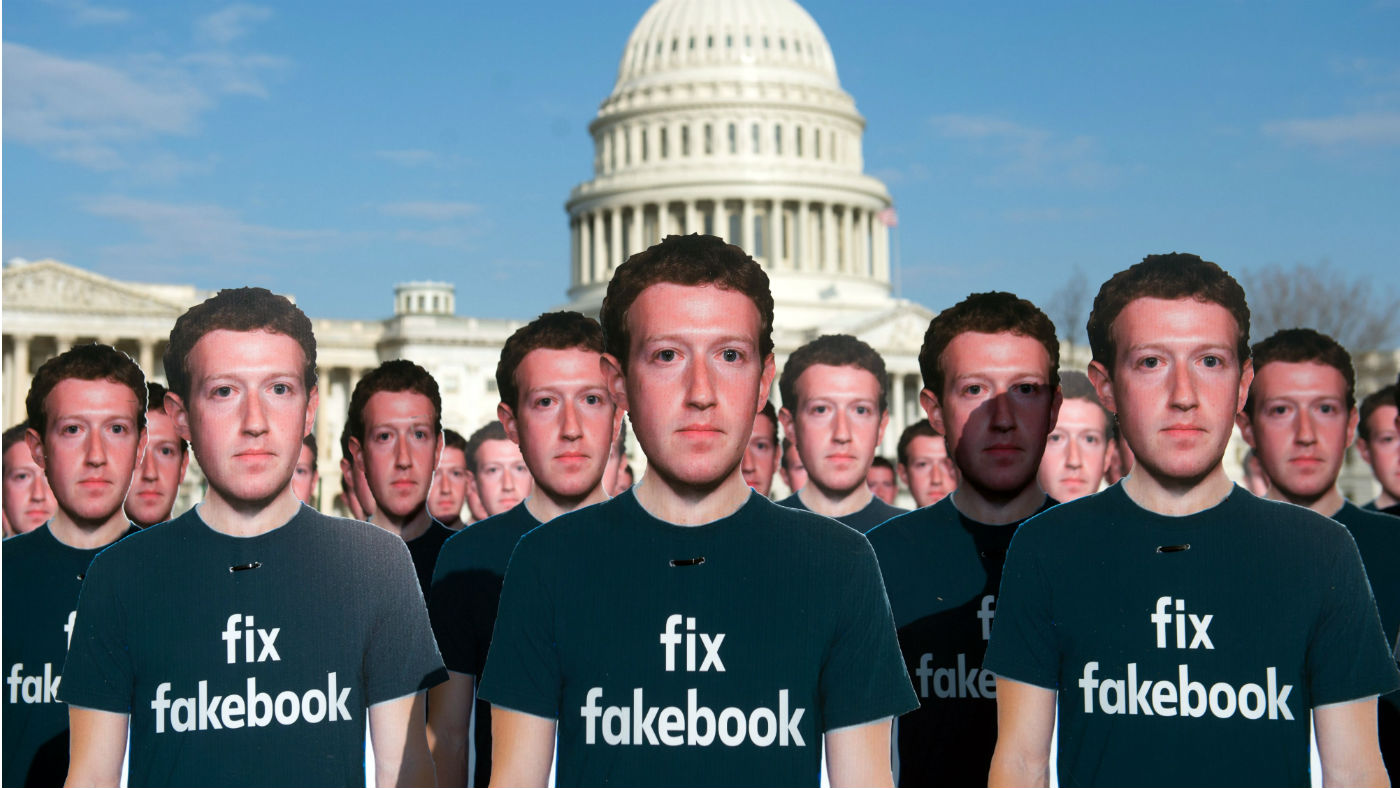Facebook used shady tactics to discredit critics and rivals
Social network accused of deploying ‘dark PR arts’ to downplay Russian election meddling

A free daily email with the biggest news stories of the day – and the best features from TheWeek.com
You are now subscribed
Your newsletter sign-up was successful
Allegations Facebook used shady PR tactics to discredit its critics, embarrass its rivals and downplay its own problems have led US lawmakers to call for tighter regulation of social networks.
The New York Times has published a wide-ranging account of the methods used to “deny and deflect” criticism of the company in the wake of claims it was used to influence elections by foreign state actors and promote hate around the world.
The newspaper claims that Facebook’s lobbying operation in Washington DC attempted to distract from growing pressure over Russian interference in the 2016 presidential election by hiring a political consultancy to target opponents.
The Week
Escape your echo chamber. Get the facts behind the news, plus analysis from multiple perspectives.

Sign up for The Week's Free Newsletters
From our morning news briefing to a weekly Good News Newsletter, get the best of The Week delivered directly to your inbox.
From our morning news briefing to a weekly Good News Newsletter, get the best of The Week delivered directly to your inbox.
It is alleged Definers Public Affairs consultancy published dozens of negative articles about other tech companies on a “news” website that the PR firm ran in-house, and also urged reporters to investigate whether there were financial links between billionaire George Soros and an anti-Facebook movement.
In a letter addressed to Facebook’s chief operating officer Sheryl Sandberg, who The Guardian says has also been the “executive responsible for the company’s political operations over last few years,” the Soros-backed Open Society Foundation hit out at the company as “reprehensible” and said its methods “threaten the very values underpinning our democracy”.
OSF President, Patrick Gaspard, went on to say that Facebook had used tactics “out of Putin's playbook” that had “no place in an important debate about the integrity of our elections”.
Perhaps more damaging are claims that “as evidence accumulated that Facebook’s power could also be exploited to disrupt elections, broadcast viral propaganda and inspire deadly campaigns of hate around the globe”, Sandberg and Facebook founder Mark Zuckerberg “ignored warning signs and then sought to conceal them from public view” to pursue their growth objectives.
A free daily email with the biggest news stories of the day – and the best features from TheWeek.com
According to the New York Times, top executives were worried an unsanctioned internal investigation into Russian election meddling had “exposed” the company to legal action. It is also alleged the company ordered blog posts about election interference to be “less specific” and “stalled” disclosing information for weeks.
“We knew that Facebook's handling of its recent crises had been inept” says BBC technology correspondent Rory Cellan-Jones, “but now the New York Times has painted a startling picture not just of negligence and mismanagement by Facebook's leaders but of deeply questionable tactics as they fought to protect the image of their company”.
It appears the ongoing scrutiny of the company has also affected moral. The Wall Street Journal says it had seen an internal survey taken by 29,000 employees that reported only half were “optimistic” about the company's future, a fall of 32% from the previous year.
What is more, “this new evidence of ethical failings will also embolden politicians and regulators around the world who want to clip Facebook's wings”, says Cellan-Jones.
One Democratic congressman, David Cicilline, joined calls for social networks and media platforms to face greater government scrutiny by posting: “Facebook cannot be trusted to regulate itself. Facebook executives will always put their massive profits ahead of the interests of their customers. Congress should get to work enacting new laws to hold concentrated economic power to account.”